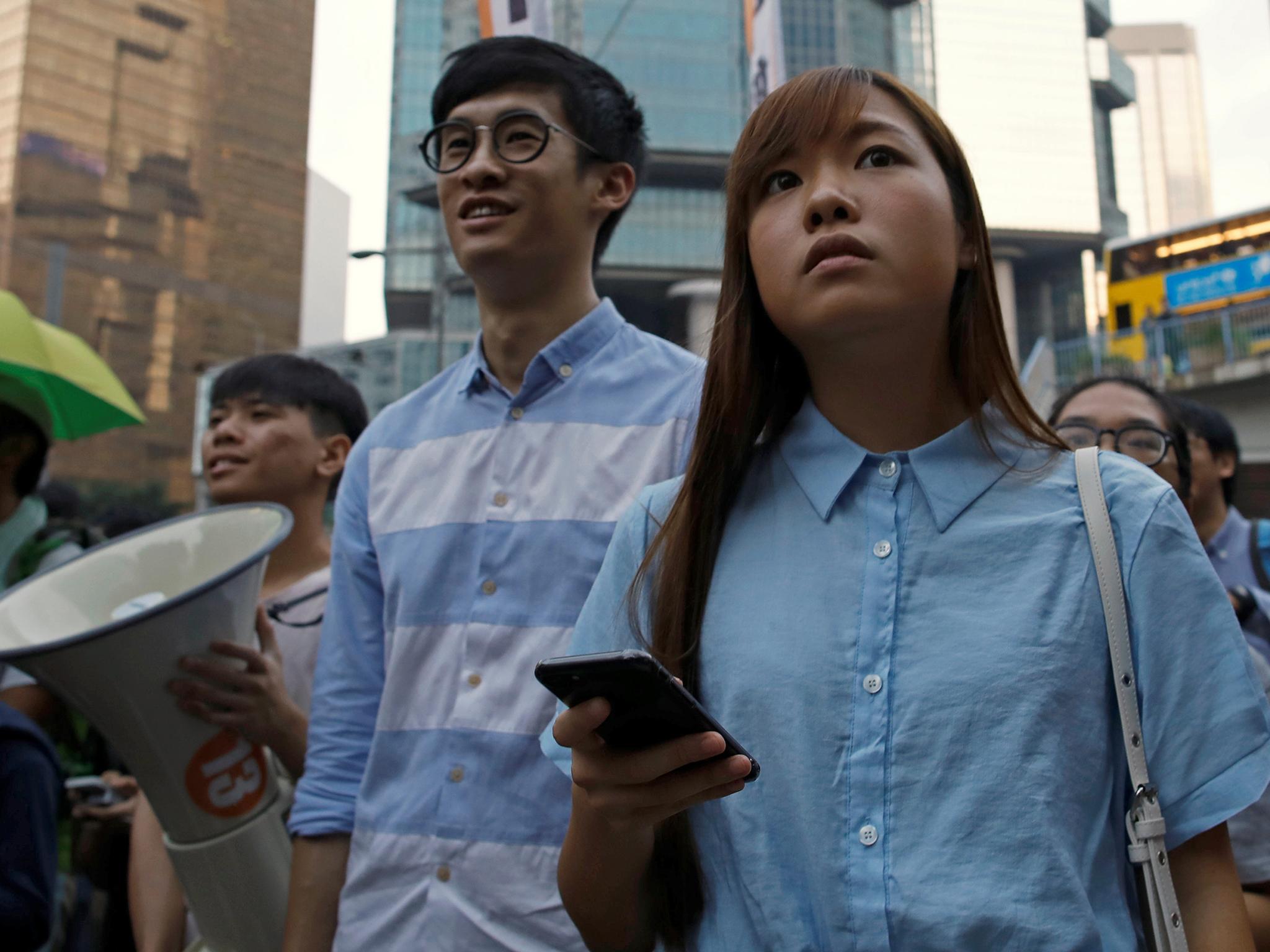Hong Kong faces constitutional crisis after China bans pro-democracy politicians from city council
'More people, particularly young people, will be determined to break restrictions set by Beijing'

Your support helps us to tell the story
From reproductive rights to climate change to Big Tech, The Independent is on the ground when the story is developing. Whether it's investigating the financials of Elon Musk's pro-Trump PAC or producing our latest documentary, 'The A Word', which shines a light on the American women fighting for reproductive rights, we know how important it is to parse out the facts from the messaging.
At such a critical moment in US history, we need reporters on the ground. Your donation allows us to keep sending journalists to speak to both sides of the story.
The Independent is trusted by Americans across the entire political spectrum. And unlike many other quality news outlets, we choose not to lock Americans out of our reporting and analysis with paywalls. We believe quality journalism should be available to everyone, paid for by those who can afford it.
Your support makes all the difference.China's parliament has effectively barred two pro-independence politicians from taking office – Beijing's most direct intervention in the territory's political system since 1997.
Sixtus Leung and Yau Wai-ching, who were elected to Hong Kong’s legislative council in September, were told they had been blocked from their new roles after refusing to swear allegiance to Beijing, leaving Hong Kong to grapple with a severe legislative crisis.
The pair carried flags reading “Hong Kong is not China” at the swearing-in ceremony for new council members in October, leading the Chinese government to make the unprecedented move.
The National People's Congress in Beijing said a section of Hong Kong mini-constitution – known as the “Basic Law” – meant the pair’s swearing-in oaths could be rendered invalid, due to the fact that they had not allied themselves to China.
The prospect of the ruling sparked protests in Hong Kong, and it is now on high alert for any repeat of the weekend clashes. Members of the city's legal profession are planning a rare silent march on Tuesday night amid pressure for them to take even stronger action.
Last month’s ceremony descended into chaos as legislators used the event to protest against restrictive Chinese rule and raise the prospect of independence.
The Chinese government said the two politicians will only be excused if they offer a “sincere and solemn” declaration of allegiance to Beijing. The incident has been seen as China’s most direct intervention in Hong Kong’s political system since 1997, when the territory was returned to Chinese control the British under a deal which was intended to give Hong Kong wide-ranging autonomy.
“The nature of Hong Kong independence is to split the country. It seriously violates the one country, two systems policy,” said Li Fei, chairman of China’s Basic Law Committee told a press conference. “We are determined to firmly confront the pro-independence forces without ambiguity.
"The central government is highly concerned about the grave dangers the Hong Kong independence forces are bringing to the country and to Hong Kong. The interpretation today will help to defend national unity and sovereignty."
Hong Kong’s Basic Law does not explicitly forbid discussion of independence and is intended to grant freedom of expression to protestors and politicians alike.
“Every time Beijing tries to use legal instruments to stop Hong Kong people seeking democracy, the opposite will happen,” Eddie Chu, a prominent pro-democracy politician, told The Guardian.
“More people, in particular young people, will be more determined to break restrictions set by Beijing.
“The thoughts of the young people have changed a lot in these few years and I don’t think this interpretation will deter them from seeking self-determination. Quite the opposite.”
The British Foreign Office meanwhile said it was concerned by the decision and urged the leaders of China and Hong Kong to co-operate to prevent further unrest.
“We urge the Chinese and Hong Kong (special administrative region) governments, and all elected politicians in Hong Kong to refrain from any actions that fuel concerns or undermine confidence in the one country, two systems principle," it said in a statement.
Immediately after the council election in September, the Hong Kong and Macao Affairs Office – controlled by Beijing – said it “resolutely opposed” any form of independence.
Join our commenting forum
Join thought-provoking conversations, follow other Independent readers and see their replies
Comments